September was Newham Heritage Month, a whole month dedicated to looking at our history. I decided to get involved and do a social media post every day, which was relatively easy as here in Newham we have so many incredible people and stories that deserve to be spoken about.
This page is a collection of those posts exploring the people and events that have shaped Newham. We will continue to update this page as we go, sharing stories about our history and heritage.
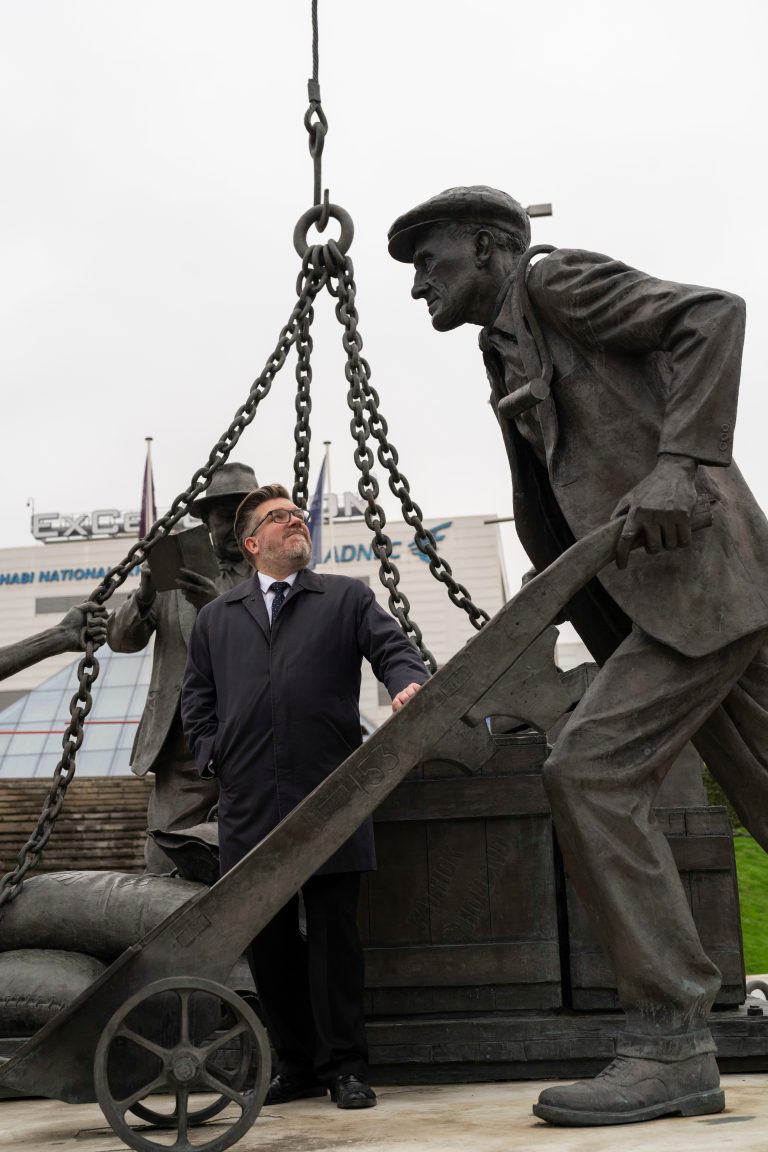
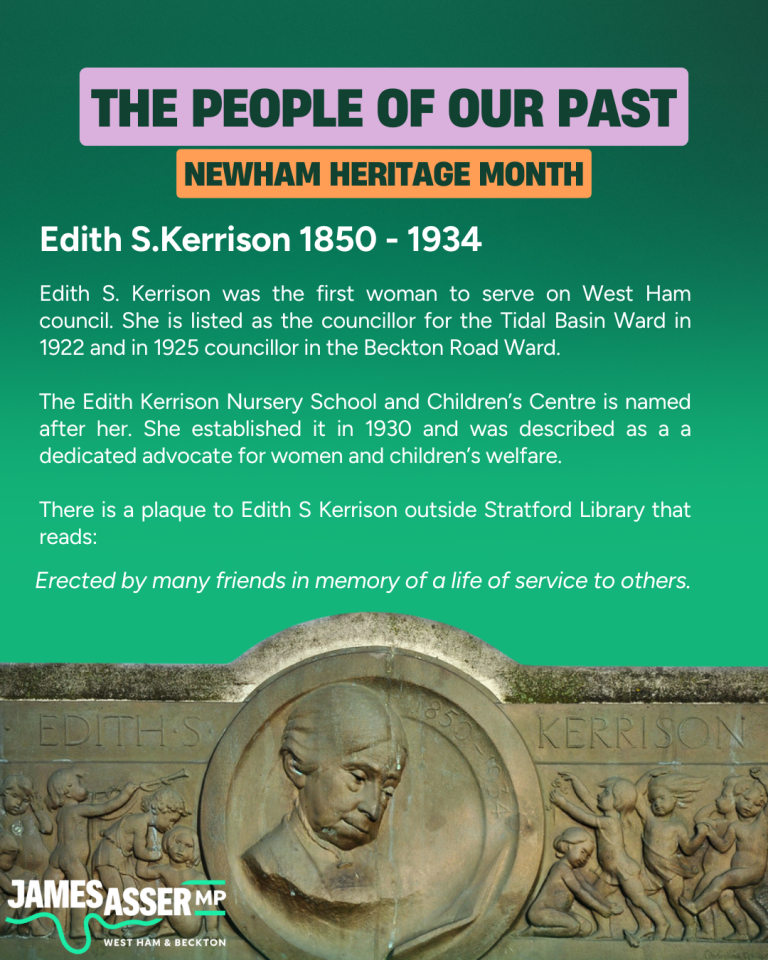
Edith Sophia Kerrison was the first woman to serve on West Ham council. She is listed as the councillor for the Tidal Basin Ward in 1922 and in 1925 councillor in the Beckton Road Ward.
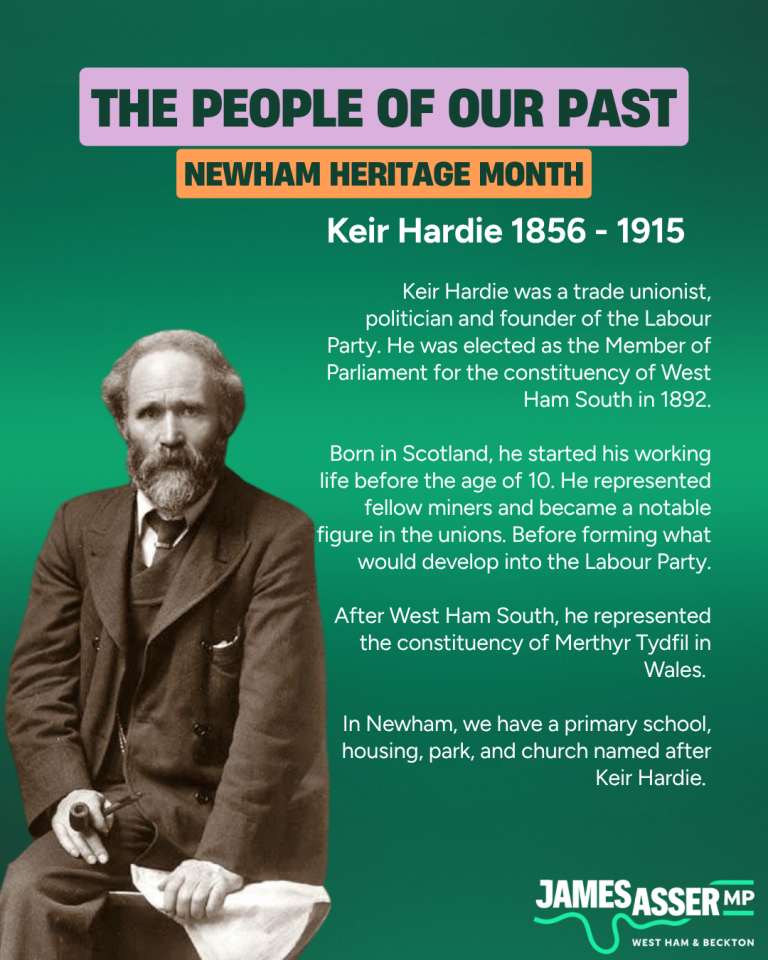
Keir Hardie was a trade unionist, politician and founder of the Labour Party. He was elected as the Member of Parliament for the constituency of West Ham South in 1892.
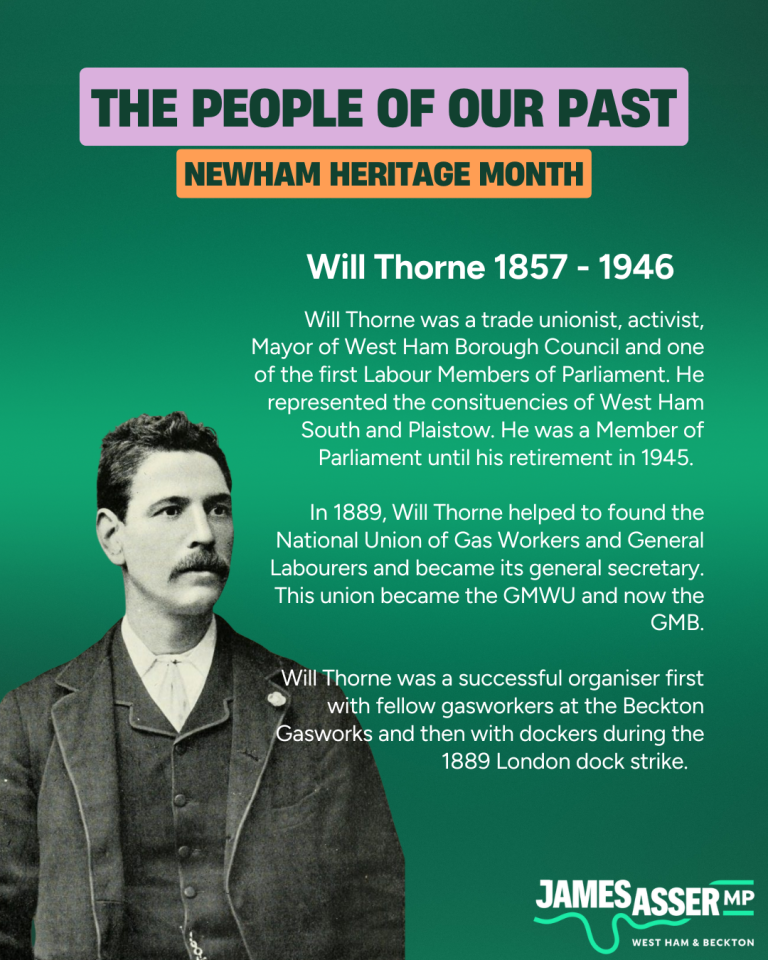
Will Thorne was a trade unionist, activist, Mayor of West Ham Borough Council and one of the first Labour Members of Parliament.
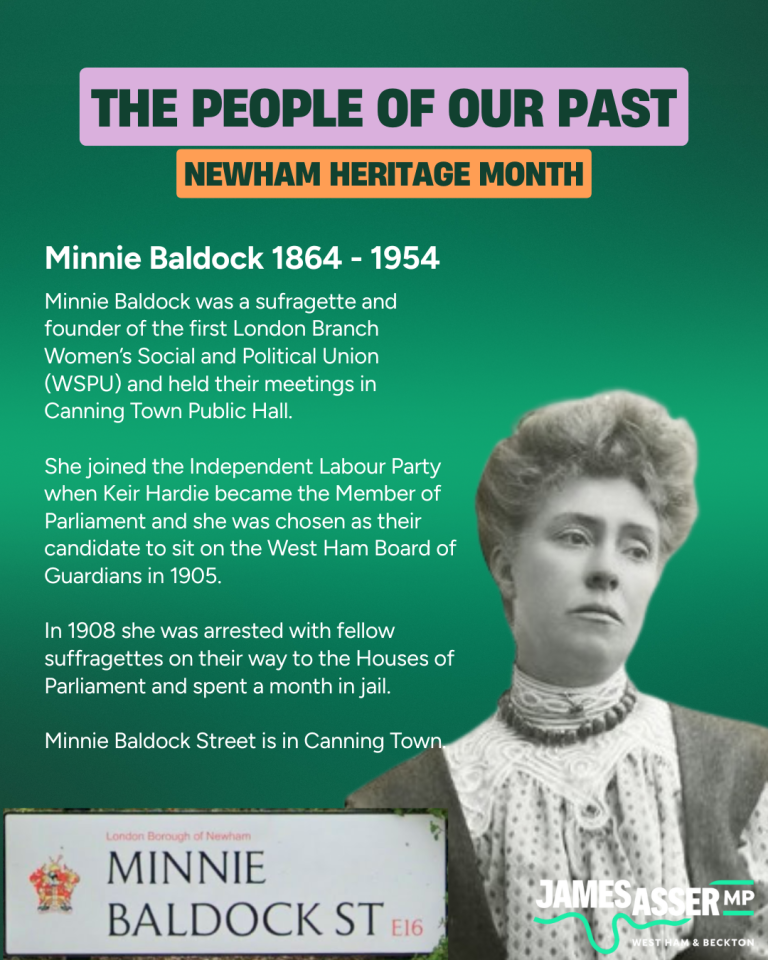
Minnie Baldock was a suffragette and founder of the first London Branch Women’s Social and Political Union (WSPU).
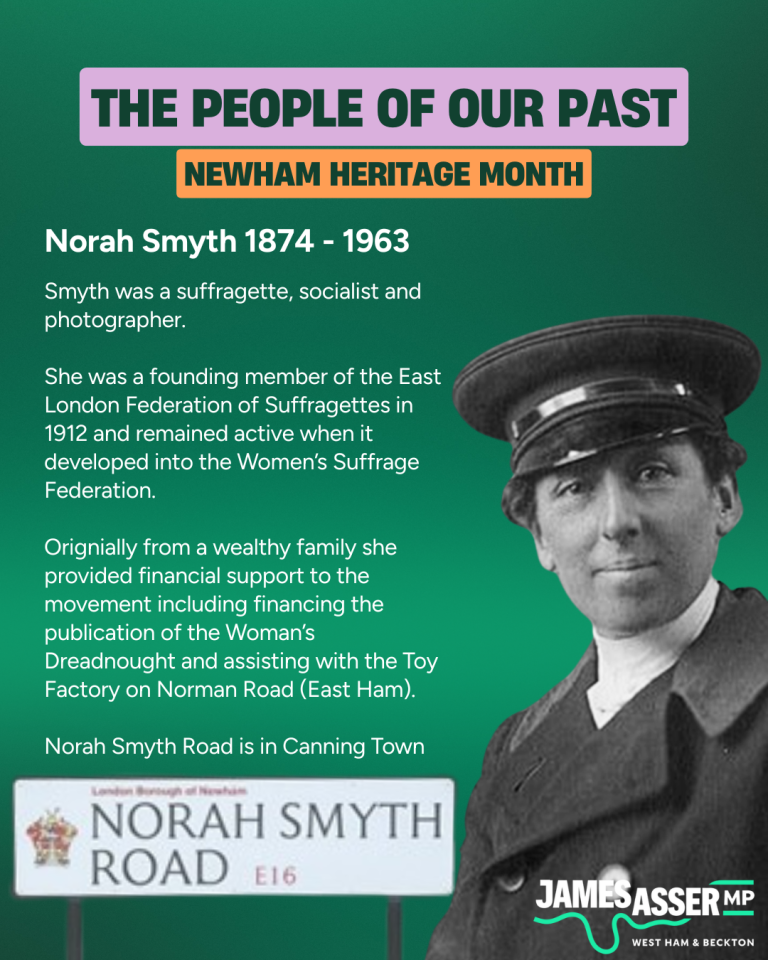
Norah Smyth was a suffragette, socialist and photographer.
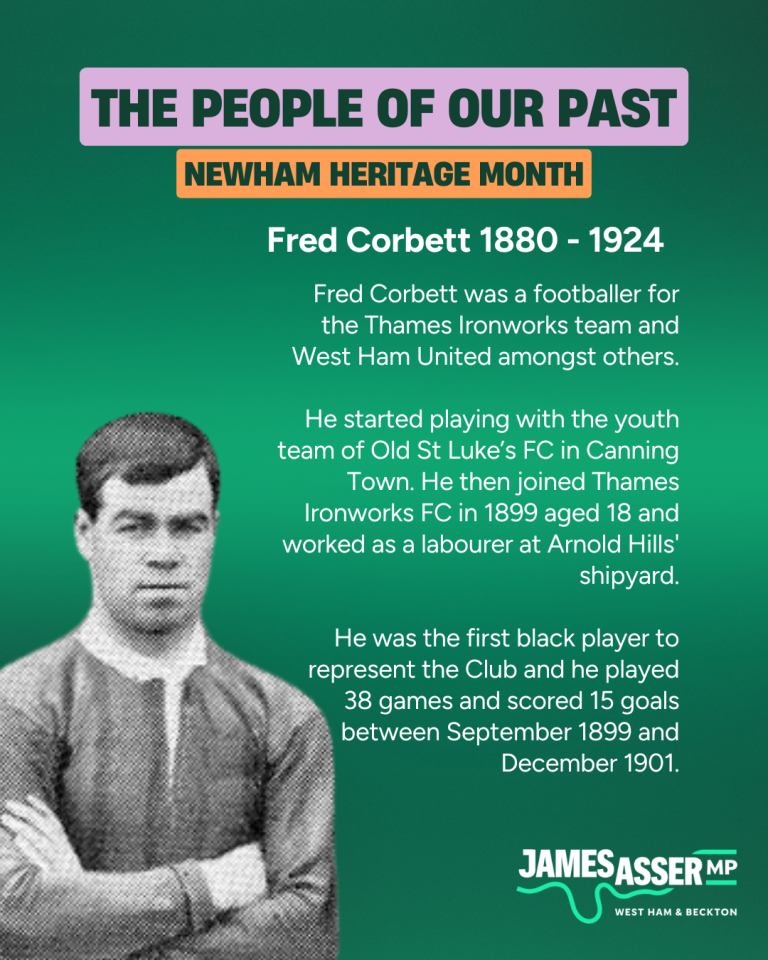
Fred Corbett was a footballer for the Thames Ironworks team and West Ham United amongst others.
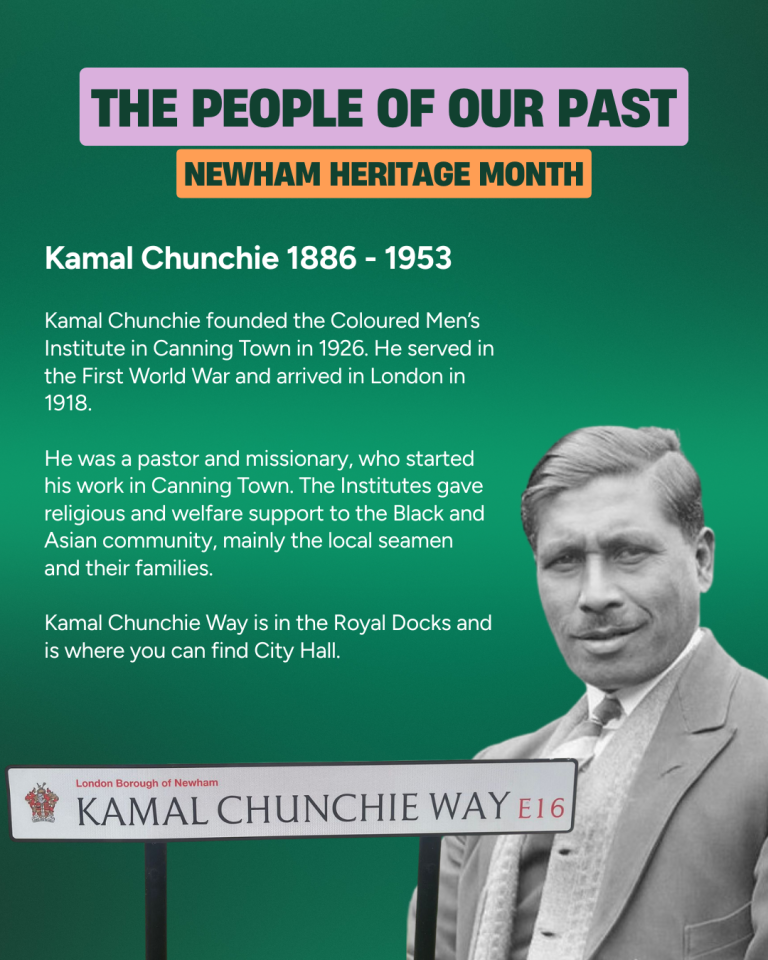
Kamal Chunchie was a pastor and activist he founded the Coloured Men’s Institute in Canning Town in 1926.
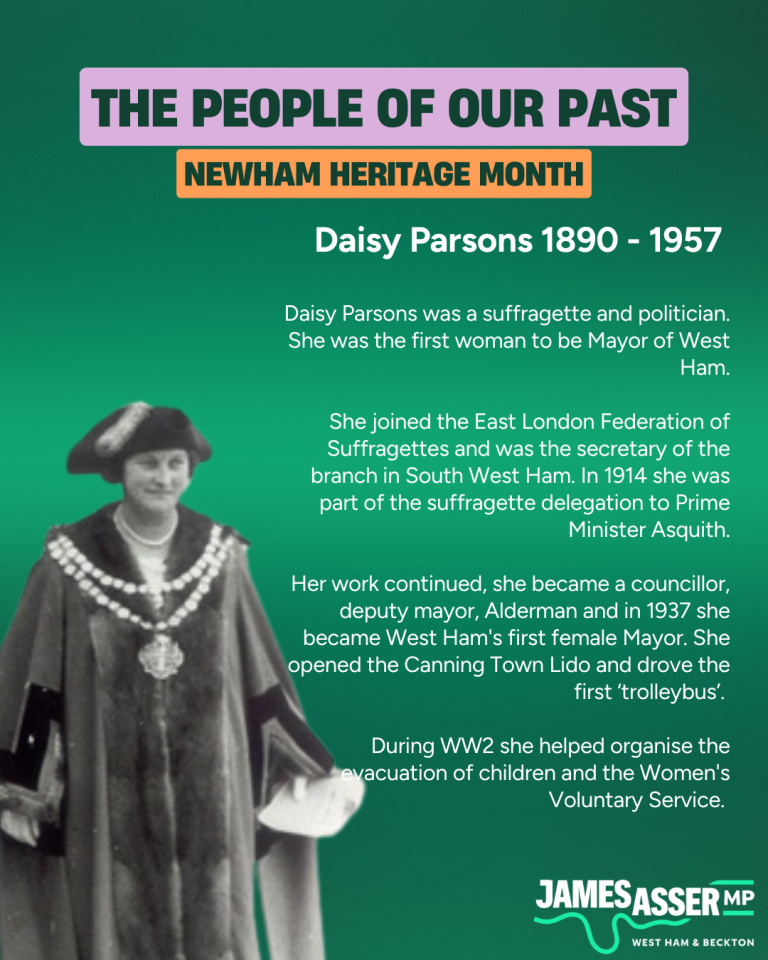
Daisy Parsons was a suffragette and politician. She was the first woman to be Mayor of West Ham.
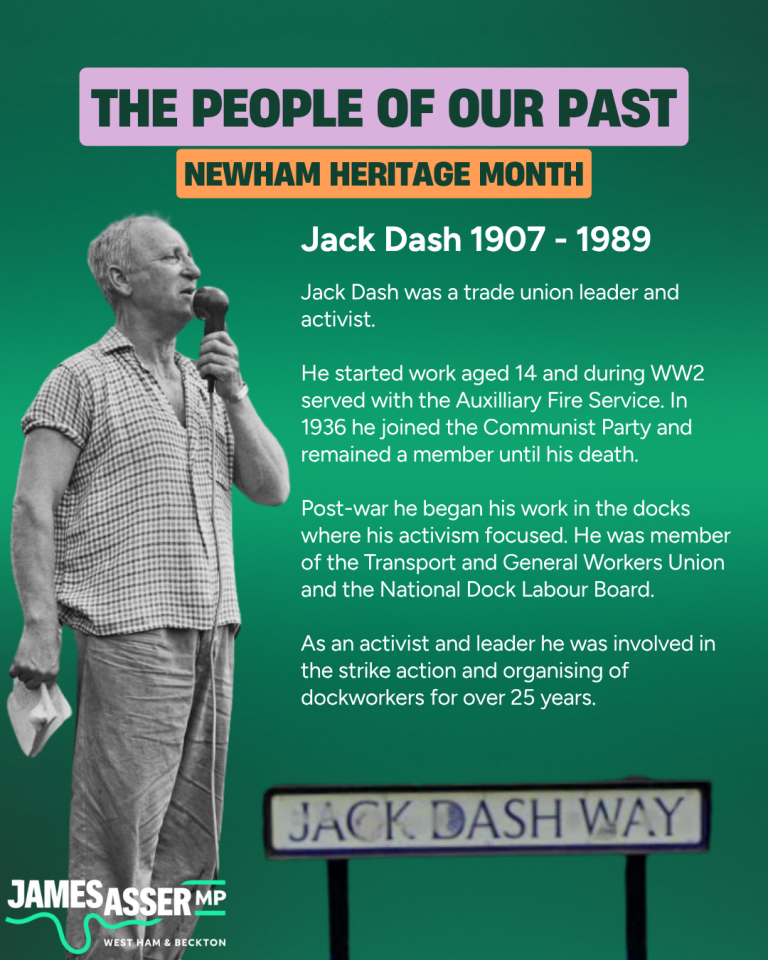
Jack Dash was a trade union leader, docker and activist.
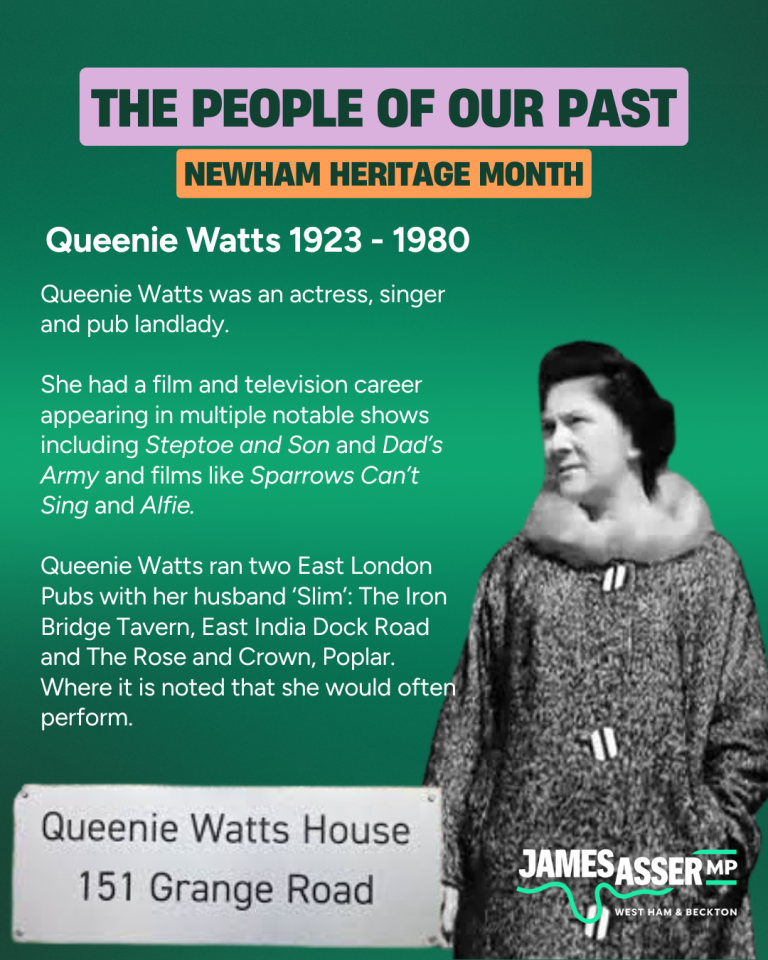
Queenie Watts was an actress, singer and pub landlady.
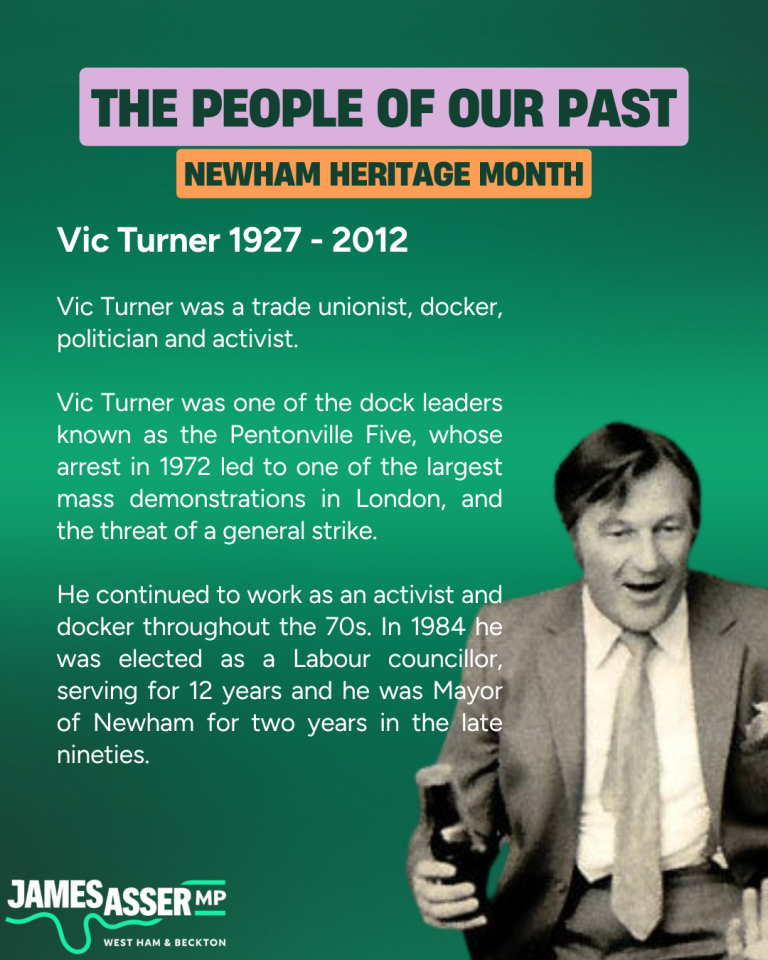
Vic Turner was a trade unionist, docker, politician and activist.
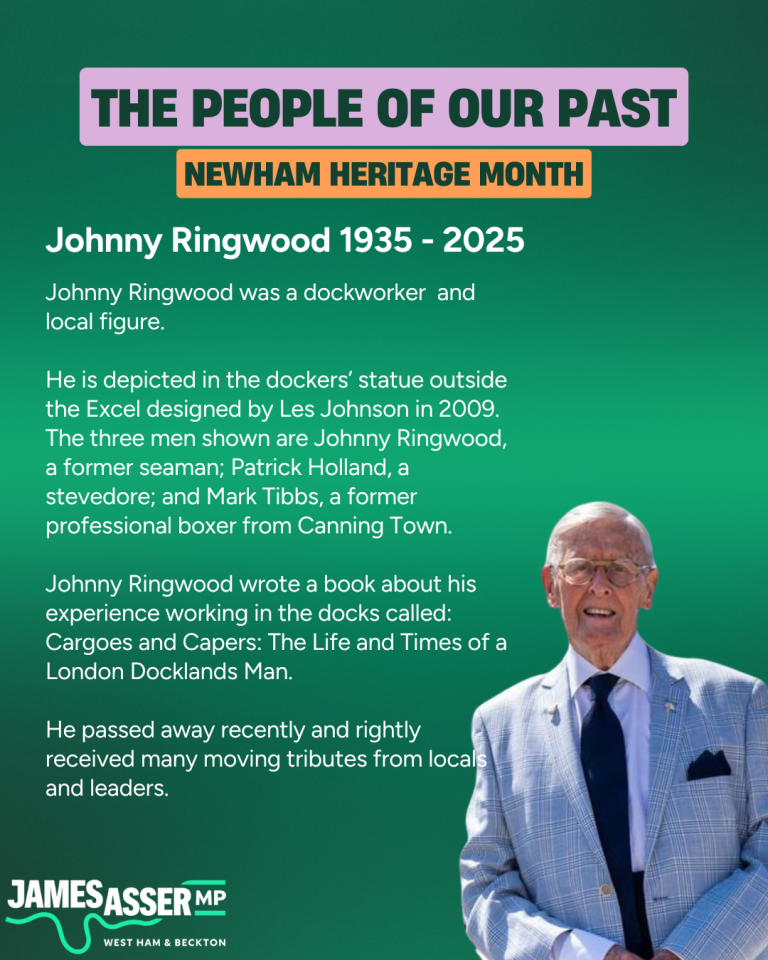
Johnny Ringwood was a dockworker and local figure.
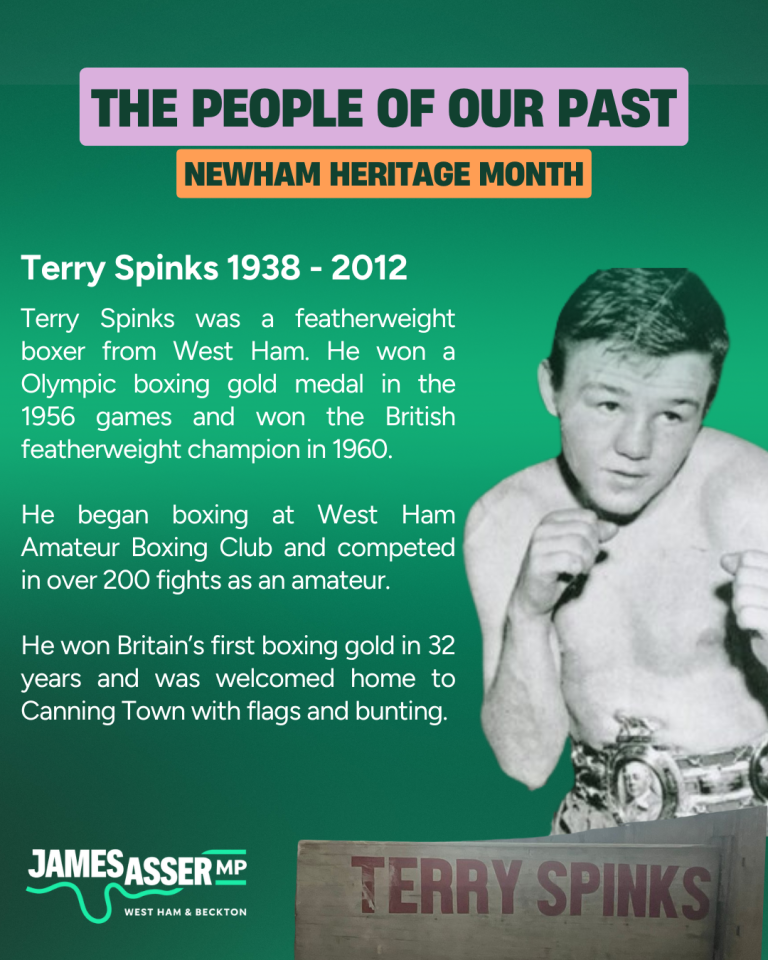
Terry Spinks was a featherweight boxer from West Ham. He won a Olympic boxing gold medal in the 1956 games and won the British featherweight champion in 1960.
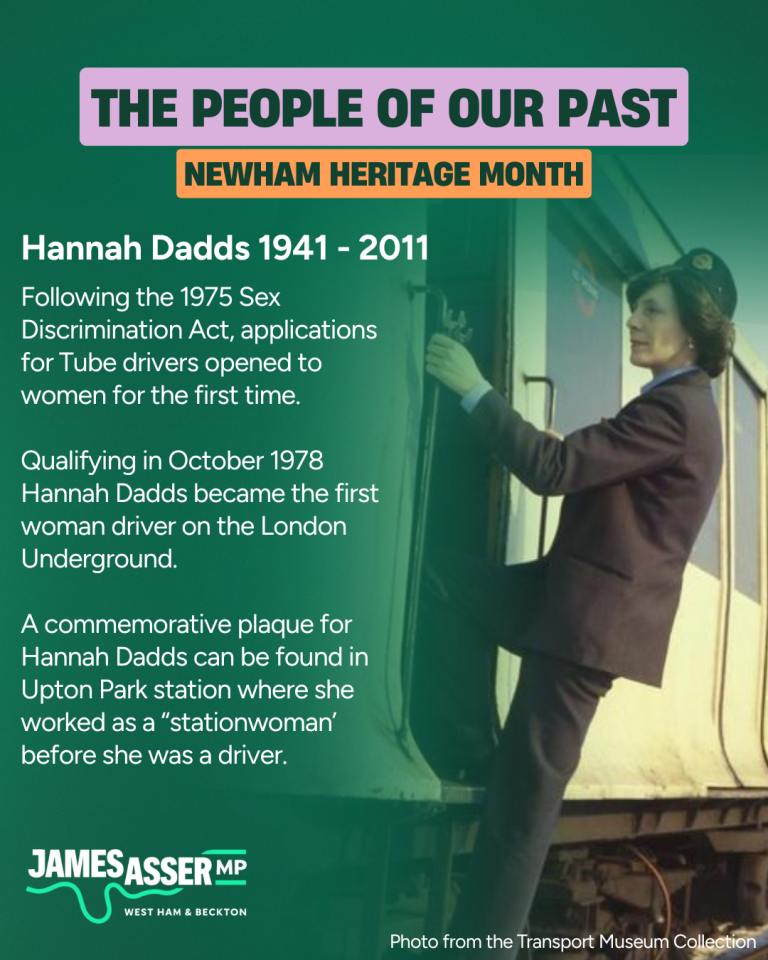
Hannah Dadds was the first woman driver on the London Underground.
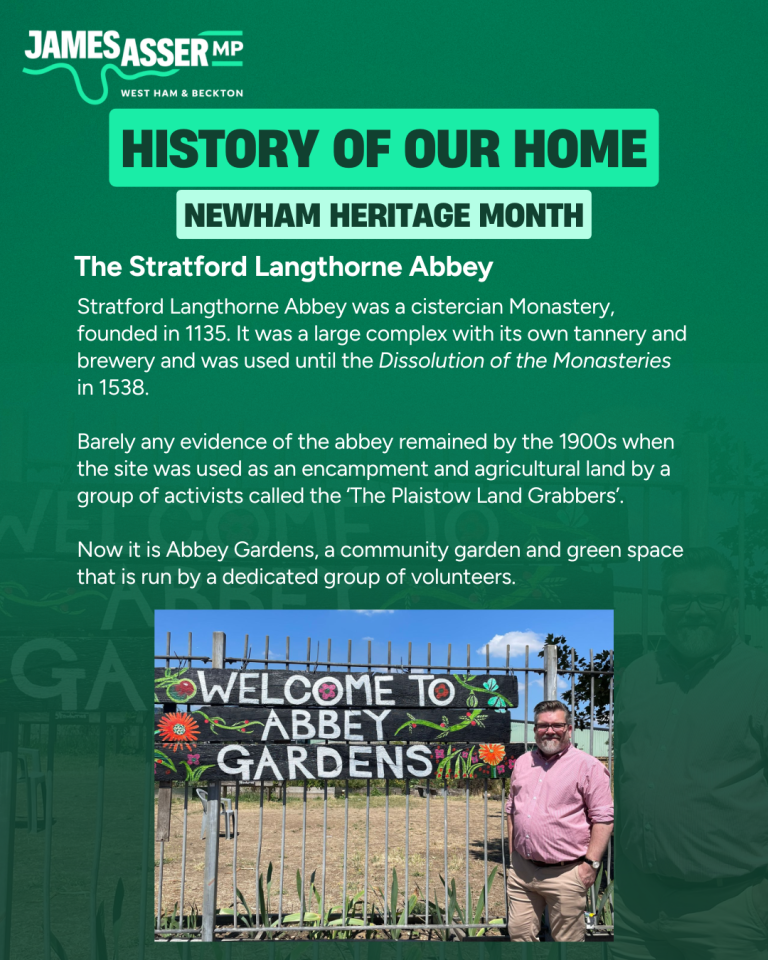
Abbey Gardens is now a community garden but it was once a Monastery visited by King Henry III and King Edward VI.
After Henry VIII dissolved the monasteries the Stratford Langthorne Abbey was reduced to rubble.
Practically all evidence of it ever existing had disappeared by 1906 when ‘the Plaistow Land Grabbers’ occupied the land in protest of mounting unemployment rates.
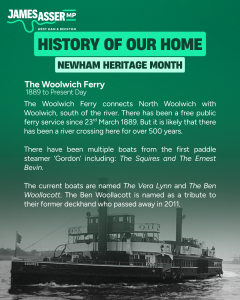
The Woolwich ferry as we’d recognise it has been running for 136 years, taking passengers across the river for free.
The boats currently in use are The Dame Vera Lynn and The Ben Woollacott.
The Dame Vera Lynn named after the ‘forces sweetheart’ who grew up in East Ham. The Ben Woollacott named after the ferry’s deckhand who was the sixth generation of his family to work on the river, he passed away whilst working in 2011 and the boat was named in his honour.
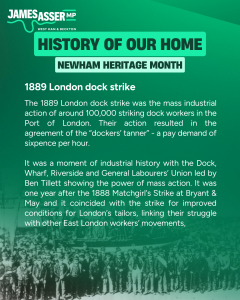
The 1889 dock strike was a key event in the industrial history of East London.
The striking